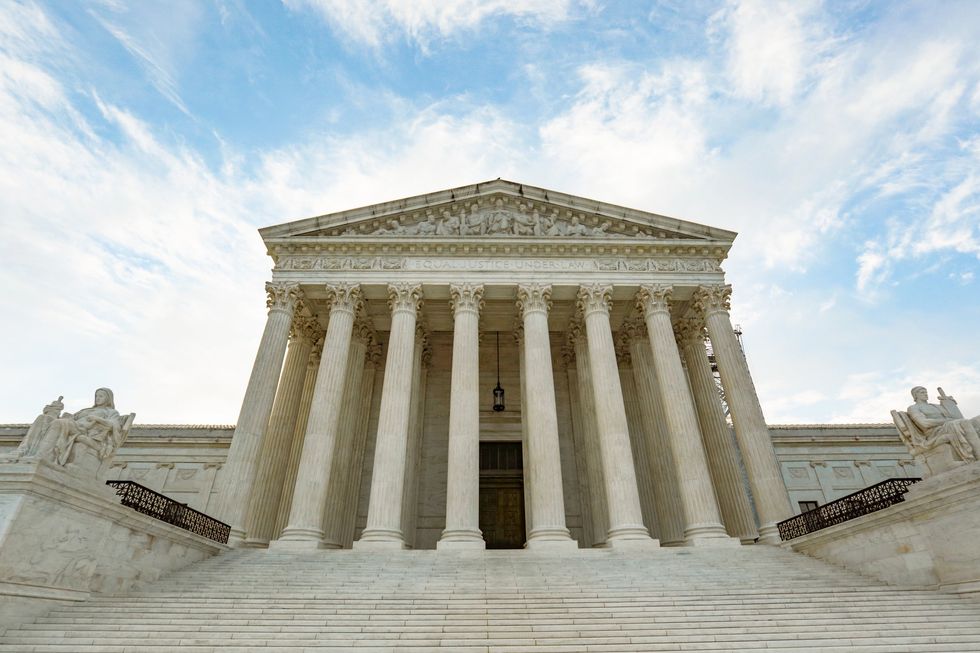Jacob Rees-Mogg says Brits are 'losing trust' in immigration judges - 'very …
GB News
OPINION: There is a distinct lack of faith in the British Judiciary from the British public, says Stephen Pound.
Don't Miss
Most Read
Trending on GB News
I’ve never known a time in my life when the British Judiciary has been held in such a mixture of bewilderment and occasional contempt.
It seems that no day can pass without another mind-numbing horror story of a decision made by a judge that flies in the face of even the most basic level of common sense.
Immigration appeal judges seem to be the worst offenders, but they are far from alone. High court and district judges weigh in with some utterly looney decisions as if in competition.
Although the vast majority – over 90% - of cases are dealt with by lay magistrates they do not seem to attract so much appalling publicity and here perhaps is an indication of how we may go some way towards restoring an element of faith in those who sit in judgement on the rest of us.
Magistrates may be highly trained, but they are not qualified lawyers. Until recently they were recruited from local people with a sense of civic responsibility. Many church and community groups nominated people to serve as magistrates and a large number were put up by their trade unions or councils. A magistrates bench nowadays will be well represented of professional lawyers - usually solicitors – padding out their cv with a few hours’ duty at the magistrates’ court.
Although magistrates are supposed to retire at age 70 this was extended during the pandemic and quite a few 75-year-oldsare now sitting on the bench.
The main reason for the move away from public spirited local people is the virtual end of “public service leave".

There is a lack of judicial accountability in the UK.
GB News/Getty Images
Nearly all trade unions, charities and councils allowed staff paid time off for service on the bench and quite a few public-spirited employers did the same.
That has all but ended in the modern business climate which explains the increase in the number of retired people currently sitting.
Magistrates lived and worked in their local communities so had a much sharper idea of what mattered to their friends and neighbours.
Contrast this with the senior judiciary.
The days may have departed when circuit judges were chauffeured around the country and accommodated in the absolute height of luxury with dinners in the judges’ lodgings being extravagantly glorious.
However, they are still overwhelmingly drawn from the upper echelons and furiously resist any attempt to introduce accountability into their practice.
When we read this week of a person being granted residence in the UK after she flew here to join her husband – who had died years earlier – or the woman who was not present at her own wedding but was allowed into the UK after failing on eight previous occasions, then our blood begins to boil.
Yet when as an MP I asked about judicial accountability I was shut up with the statement that the independence of the judiciary was much more important than any accountability.
I used to be told that there were two sorts of accountability- sacrificial and explanatory.
The first meant that if someone royally screwed up, they lost their job and the second meant that they had to give good reason to Parliament and the public why a certain decision had been made. Neither seemed to make much difference.

The American justice system offers regular elections for judges.
Getty Images
I was also told that there was – and still is – an Office for Judicial Complaints that can refer cases to the Judicial Appointments and Conduct Ombudsman.
Above all I was told that self-policing was the hallmark of British justice and that any attempt to alter the principles laid down in the Act of Settlement 1701 would mean the end of civilised society as we know it.
I would seriously suggest that there must be confidence in the judiciary or the whole institution loses credibility.
Where do we go from here?
Journalism has a huge role to play in exposing some of the daftest decisions made from on high.
Perhaps we could look at other models.
Many countries elect judges on a regular basis. America is perhaps the most obvious example.
Opponents of this system say that judges must not pander to their local electorate and may be subject coercion of prejudice.
I’ve seen the system in action and note that very few judges stand on a party-political ticket – unlike law officers such as District Attorneys – and that feels right to me.
I’m not sure that I would be comfortable if dragged up before the beak to find that she was elected as a Liberal Democrat, or even worse a Green.
I do however feel that judges might be a little less sure that their own highly intelligent opinions are superior to those of the mass of ordinary people if that had to face those simple folk every four or five years.







